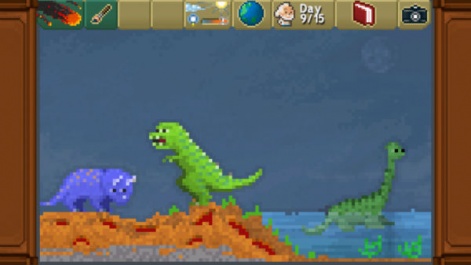And tickets are still available.
So to give you a hint at what you can expect, we're shining the spotlight onto our speakers to provide a deeper look at the personalities who will be taking the stage.
Sébastien Borget is the COO of San Francisco-headquartered, Buenos Aires-based mobile developer, Pixowl.
PocketGamer.biz: What do you think has been the biggest story in the mobile gaming industry of 2015 so far?
Sébastien Borget: We are seeing two major trends.
The first is there seem to be fewer indie success, but when they happen they are getting bigger - both in downloads numbers and in revenues numbers.
Take Crossy Roads as the leading example and just imagine if Tiny Wings or Flappy Bird had applied the same monetization strategies!
The second trend is on the other side of the industry: big studios such as Konami are deciding to make mobile their primary platform of development, while other who entered the market earlier are killing some games to refocus their products lineup (Capcom, for instance).
The competition has never been so fierce and established leaders seem to be unbeatable.
We're starting to see the growth in mobile gaming revenue slow down in western markets, while in most Asian countries it's still very high. Is this changing the way you approach the sector?
We've noticed this shift since late 2014 as for some weeks, China has been the top 1 or 2 source country for iOS downloads on our primary game, popular 2D pixel art world builder game, The Sandbox [iTunes link].
Previously, the US has been our historic top download source.

You can either ignore this - and hence have an untapped source of potential revenues - or start doing something about it. Of course, it's not easy for us western developers to understand this distant market, but I believe that we are making progress in learning more about it.
As indie developers, we are more flexible to adapt to these changes and bring new ideas or game mechanics to fit this increasing audience.
Brands and celebrities continue to get more important. Is this a good thing for mobile gaming?
Back in 2013, we have adopted the strategy of work with brands and celebrities.
In April 2015, we launched a game with the Garfield characters, named Garfield: Survival of the Fattest [iTunes link], and we have two more titles with popular cartoon characters in our launch roadmap for 2015-2016.
I am particularly excited about the East meets West track to meet with Asian partners and explore collaboration opportunities.Sébastien Borget
Also, in January 2015, we launched an update for The Sandbox, featuring the characters and 1 campaign of levels from the Invincible comic by Robert Kirkman, creator of The Walking Dead.
Whether we develop full titles for brands and celebrities or we integrate them within our existing games as "expansion packs", we think we've been able to remain very creative while working with these IPs.
The key is to bring a valuable new experience to the fans of the brand/celebrity, while preserving our values as creators of indie games.
There's lots of hype about wearables, VR and AR at the moment. Do they excite you as gaming platforms?
Hasn't gaming been always leading the way to bring a new technology to the mass consumers market?
To most, wearables are still related to running/exercise/fitness but I think they will soon thrive with games. Not necessarily the same kind of games you experience on your mobile, but a new breed of games adapted to this format. They will coexist with mobile and console games.
About VR and AR, all the hype is already there and many studios have already jumped on the bandwagon.
In my opinion, the mass adoption will really depend on how comfortable we can make this technology for a day to day use.
We have 3D TVs, but very few people put on their 3D glasses in their home cinema. Similarly, how many of us are disabling the 3D effect on the Nintendo 3DS?
The technology is there and working, but it's not comfortable enough yet.
What's been your favourite game of 2015 so far. Why?
Definitely Pirate Kings! This game is damn simple and accessible, although you just can't stop spinning the wheel.
Every details of its execution is perfect, from UI, mobile gestures and gameplay. You feel like winning all the time: it's rewarding and satisfying for players.
I am finding a lot of inspiration from the game as the developer [Jelly Button] succeed to make a casino-like game mechanic without forcing abusive monetization.
It's beautiful, fun and very accessible for casual players.
What can you reveal about the talk you're giving at Pocket Gamer Connects San Francisco 2015?
Most developers think about the success of games that are instant hits from their first day on the app store.
The story I would like to share is that it is possible to build a success that can last over years with a smart strategy consisting of community management, regular updates and empowerment of players.
What are you most looking forward to at Pocket Gamer Connects San Francisco 2015?
I am particularly excited about the East meets West track to meet with Asian (China, Korea, Japan and South East Asia) partners and explore collaboration opportunities.
I've found you can learn a lot more about the future tendencies of the global market by looking at the Asian market, considering the massive adoption of smartphones and how broad the demographics of players is in this region.
Every game in this market feels so optimized for their audience, it's definitely an inspiration for us.

















